Agora is professional reading journal for History teachers. Each issue provides perspectives on a particular theme, from curriculum-focused content to pedagogical practice, along with teaching strategies, classroom activities and educational resources addressing the broader History curriculum.
Reflection
Editorial
Divergent Revolutions in Russia and Ukraine • In 1917 there were many revolutions in the Russian Empire, but it was the Ukrainian Revolution that Petrograd feared above all.
What Does ‘Fascism’ Mean? • ‘Fascism’ is a powerful term yet many people cannot define what it is despite its pernicious spread as far as Australia.
How Communist Fears Changed Australia • While concerns about communism led to events that determined Australia’s election results for more than two decades, they also led to policy changes that eroded White Australia prejudices as the nation played a stronger role in the Asia–Pacific.
The Secrecy of British Nuclear Testing in Australia • The history of the British nuclear tests in Australia involves a tragic intersection of race, politics, science, health and the environment.
British Signals Intelligence during the Cuban Missile Crisis • With nuclear war at a flashpoint, British intelligence detected that Soviet missile supply ships had turned back.
The Australian Women’s Weekly as a Historical Source on Women during the Cold War • The Australian Women’s Weekly is digitised and searchable on Trove, opening the opportunity to discuss how Australian women understood and experienced Cold War politics.
Myths about the Soviet Invasion of Afghanistan • There is more to the Soviet-Afghan War than the simple narrative of a Soviet invasion resisted by pious freedom-fighters.
A History of ‘Queer’ Activism • While LGBTIQA+ history has not been recorded in conventional sources, visual artists have created opportunities to interpret transformative periods of ‘queer’ activism.
The Changing World of Work • Technology has influenced the way we work, not only taking the place of many labouring, farming and even office jobs but also transforming gender roles.
Teaching the Holocaust in the History Classroom • It is now mandatory to teach about the Holocaust in Victorian government schools. Here is some guidance for how to teach such confronting and potentially traumatic content in an age-appropriate, safe and meaningful manner.
The Role of Cultural Museums in Building Historical Empathy in the Classroom • The Islamic Museum of Australia helps students develop historical empathy by presenting intercultural perspectives of migrant communities that counter negative stereotypes.
Art Reveals How Weimar and Nazi Cultures Diverged • While art during the Weimar Republic rejected the values that led to the horrors of World War I, Nazi art tried to turn back the clock to idealise German traditions.
POW Experiences in Changi and Regional Victoria: A Resource for History Teachers • A new resource for Year 9 and 10 students presents two parallel Prisoner of War experiences revealing Australians as captives and captors.
Using Protest Music in Your Classroom • Music provides an engaging medium to explore First Nations perspectives.
Proxy Wars and Conflicts: Resources to Help You Pick Your Contexts • Modern History Unit 2 Outcome 1 requires the selection of one or more proxy wars or conflicts. Here are some resources to give you background knowledge on each of the contexts.
Using the National Library of Australia’s Map Search to Teach Modern History • Map Search enables students to place thousands of digitised historical maps over modern maps, and to annotate them with historical documents to compare how Australian places have changed over time.
Immersive Cold War Experiences Using...
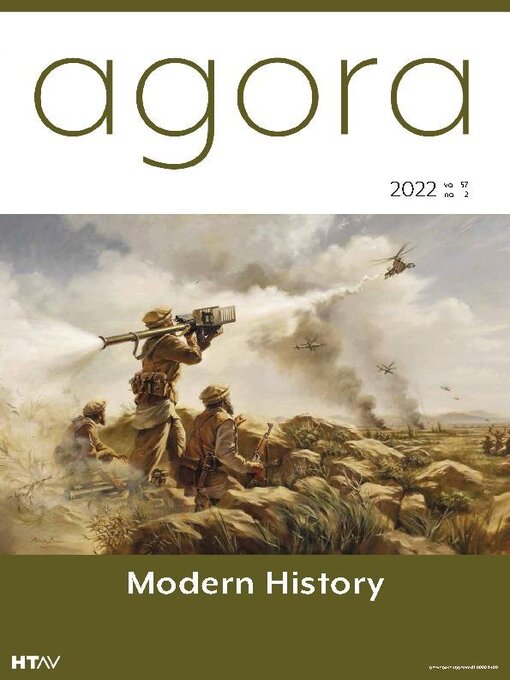
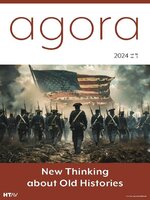 Vol 59 No 3 2024
Vol 59 No 3 2024
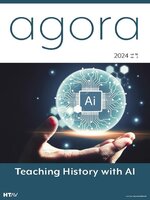 Vol 59 No 2 2024
Vol 59 No 2 2024
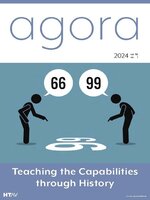 Vol 59 No 1 2024
Vol 59 No 1 2024
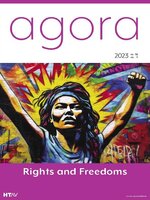 Vol. 58 no. 3 2023
Vol. 58 no. 3 2023
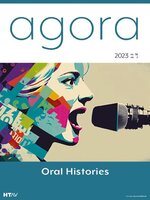 Vol. 58 no. 2 2023
Vol. 58 no. 2 2023
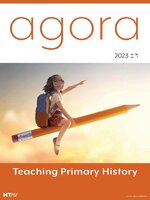 Vol. 58 no. 1 2023
Vol. 58 no. 1 2023
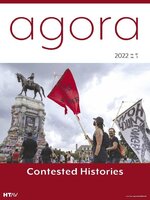 Vol. 57 no. 3 2022
Vol. 57 no. 3 2022
 Vol. 57 no. 2 2022
Vol. 57 no. 2 2022
 Vol. 57 no. 1 2022
Vol. 57 no. 1 2022
 Vol. 56 no. 3 2021
Vol. 56 no. 3 2021
 Vol. 56 no. 2 2021
Vol. 56 no. 2 2021
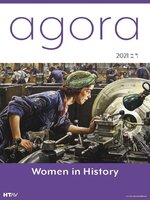 Vol. 56 no. 1 2021
Vol. 56 no. 1 2021
